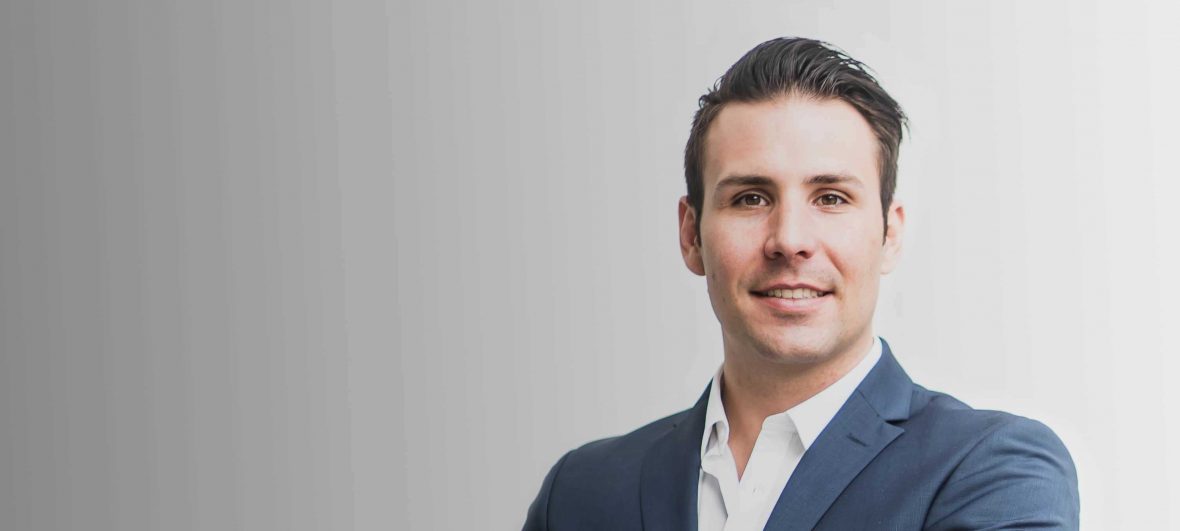
AECOM’s DACH Head of Operations, Johannes Lell, tells Cornerstone about how the property market is changing across Europe, the big challenges facing real estate investors — and his love of fishing.
How did you arrive at your current role?
After graduating as a Master of Science in Real Estate at the University of Regensburg, and working as a master’s degree candidate at Audi in Ingolstadt in the field of retail development, I joined AECOM in Munich in 2014. My first role was as a project manager specialising in financial project controlling for clients such as Magna, Audi, and Siemens.
In 2015, I had the chance to lead a controlling project to produce SUVs for Porsche, Audi, Volkswagen, Lamborghini and Bentley in Bratislava. I decided to move to Slovakia long-term where I finished the project after more than a year. The project’s target was to integrate a new controlling tool/ process for the change management in the overall body shop. After my return to Germany, I took the next step in my career as DACH Head of Operations for AECOM’s Buildings + Places practice.
How is the property market changing across Europe?
Any successful real estate investment is a combination of micro- and macro-economic factors, location being the determining issue. Europe currently faces many macro-economic challenges. This includes momentous political decisions like the European policy on interest rates, Britain leaving the EU, immigration, negotiations with potential new EU member states in the Balkans, and infrastructure development.
Consequently, there will be shifts in the macro-economy, and they will create winners and losers. Admitting new member states into the EU will induce considerable investments in both economy and infrastructure. Numerous real estate investors from different branches worldwide will be lured to the eastern border states. I have personally witnessed this effect on central European countries during my time in Slovakia.
In the long term, I can picture a European hub for production industries developing in central and eastern Europe. Brexit has already caused a significant rise in real estate investments in alternative financial centres like Frankfurt. Here, one single political decision has created considerable yield potential for investors. In my view, this underlines the new growth markets’ crucial dependency on macro-economic factors and decisions. I see western Europe as a safe haven for sustainable growth. Micro-economically, future investments will primarily happen in major European cities and metropolitan areas, due to demographic change and urbanisation.
What are the biggest challenges that real estate investors face?
The biggest challenge will be globalisation combined with rising population figures as well as political and overall economic trends. Climate change is another issue, too. Other important issues are infrastructure, mobility, logistics and security. We also have to consider the developments in robotics and digitalisation, and the changes in work environment and production techniques. Real estate investors need to be aware of all these aspects and stay flexible with their investments. The markets will continue to offer suitable properties for any kind of investor. Local and European property markets will face increasing competition worldwide.
Describe how a project during your career changed your perception of the market.
My work with Audi for the global Audi City and my time in Slovakia shaped my personal view on local markets. I realised that greater investment returns are typically not generated in the conventional, traditional real estate markets. To be successful, future investors should invest boldly in diversified assets.
From which part of the market will the next disruption come?
A crisis won’t be caused from within the market – this needs a trigger from outside. In the long term, the overall real estate market will experience falling investments and prices caused by a combination of mistakes in finance policy and political interference. This will cause economic stagnation again as happened in the real estate crisis in the US in 2008. Every business has its ups and downs as well as cycles.
What is the most valuable lesson you have learned during your career?
Be open-minded about new situations, working in new countries, challenges, ideas and visions. Also, be empathic and work successfully in a team.
Tell us something surprising about yourself.
I spend a lot of time fly-fishing. This year I spent my vacation fishing for salmon in Canada, in my view the best destination for fly-fishers. I prefer this kind of active fishing because you have to search for the fish and you spend a lot of time surrounded by nature.
I was also an amateur footballer for 25 years, playing for my hometown club Kallmünz as a central midfielder. I miss playing in the team, the competitiveness of games, the atmosphere with the fans, and the feeling when you play important finals or derby matches. I still manage to get a game with my team when visit home some weekends.
